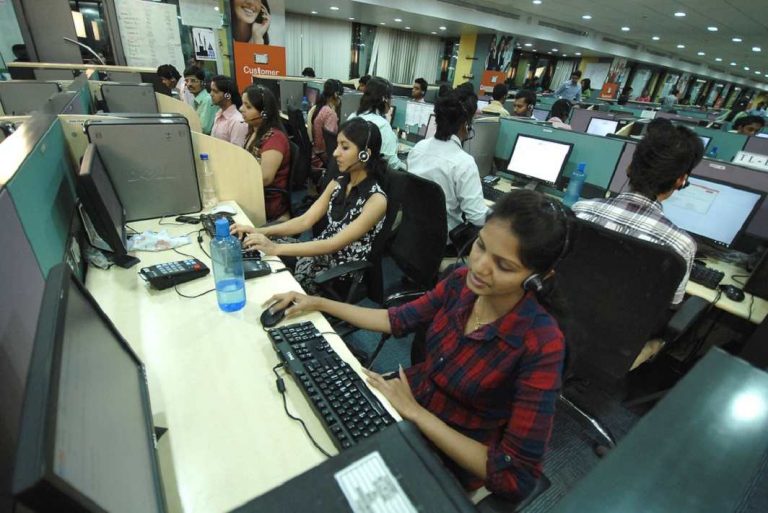
A recent statement by a firm that its responsibility ends with the woman logging out reveals the dark underbelly of the industry
~By Lilly Paul
According to the International Labour Organisation, India’s Female Labour Force Participation (FLFP) was at 27 percent as of 2013 and the country stood at 121 out of 131 countries. India’s FLFP rate has been one of the lowest in the world and the lowest in South Asia with only Pakistan as an exception. The global average, as per the World Bank, was 39.4 percent in 2016 and India’s position has not risen appreciably.
The already dire condition of working women is unlikely to get better, looking at the arrogant attitude of organisations. A debate on the adequacy of safety measures taken by companies for their women employees was reinitiated after the vice-president of IDC Technologies, a Bengaluru BPO firm, told its women staff that the organisation was not responsible for their safety once they log out.
The women in the firm had to work from 6.30 pm to 3.30 in the morning. When the women complained, the shift timings were changed to 7.30 pm to 4.30 am. They had to wait in office till sunrise before leaving for their homes, because to get public transport that early was impossible.
The incident surfaced after Manisha Kumari, a technical recruiter with IDC Technologies decided to file a complaint in this regard with the Karnataka’s IT minister of the state, Priyank Kharge. Manisha, who joined the firm in February, was told that the car services would start a month later, but the company did not keep its promise. She later learned that the problem was two years old.
She complained to the authorities after being harassed thrice on her way back home, which is 4 km from her workplace. Other women too had had similar experiences. But neither she nor the other women employees got any help from the company as they were clearly told that the company was responsible for their safety till they are in office and not after they log out.
This brings to mind an old case that started off the debates in the first place.
Pratibha Srikanth Murthy, a 28-year-old employee of BPO HP Globalsoft was raped and murdered by a taxi driver in Bengaluru in December 2005. She was returning home from night shift. The incident had created a furore about women working night shifts and also made companies change their policy for working women. IT and BPO companies throughout the country shifted to better safety measures after the tragic incident. Several companies introduced pick-up and drop facility for their women employees.
Bengaluru is the state which had triggered the debate earlier and it is in the limelight again. Bengaluru is the same state which had announced a Rs 10 crore fund for its women entrepreneurs on International Women’s Day this year. The women entrepreneurs of the state were promised full legal and financial support from the government. But it seems that the government didn’t assure them of safety at their workplaces.
On March 28, a panel on women and child welfare tabled a report recommending that women not be assigned for night duty in the information and bio-technology sectors to ensure their safety. The Karnataka government was criticized for such a recommendation. Later, in December 2016, the Karnataka government removed restrictions regarding assigning night shifts to women in all the sectors along with IT and ITEs sectors.
The state government had at the time also issued a set of 15 guidelines to be followed while deploying women in night shifts which included a letter of consent and first priority in pick-up and drop facility. A violation of these rules a stated in the official guidelines can lead to termination of license of the company.
Section 66 (1) (b) of the Factories Act, 1948, said that women shall not be made to work in any company except between 6 am and 7 pm. This was later amended and women were allowed to work in industries in their desired timings.
The Factories’ Act does not apply to the IT sector, but that is what is considered a base on which labour standards for other industries are built.
Rules say that no female employee should be made to work separately, but in a group along with special arrangements for women working before 6 am and after 8.30 pm.
The condition to provide transportation till door step was made mandatory along with other safety measures. It was also mentioned that the car provided must be monitored through GPS and also, a security guard should accompany the women employees. None of these measures are adopted by the companies nor does the government take any action against the defaulters.
The conditions are unlikely to change if the companies don’t change their negligent attitude towards safety of women at workplace.

